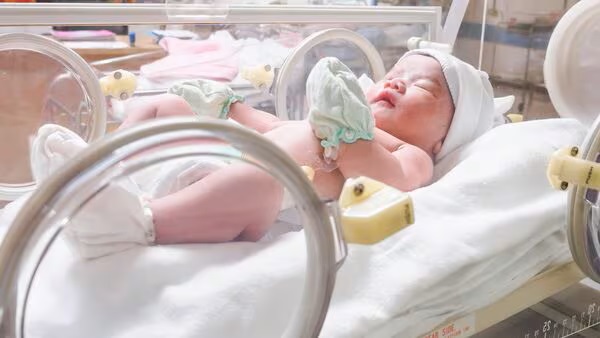GE HealthCare’s Giraffe Incubator Carestation is specifically designed to enhance the care experience, while providing the best possible neuroprotective environment for the newborn.
Weighing 750 grams, a pre-term baby girl was born, at Jodhpur’s Umaid Hospital with a hyaline membrane disease (HMD) and other complications. After a 53-day long battle for survival, the baby was discharged from the hospital at a weight of 1.65 kgs with stable vital parameters. Her story resonates with many others. However, in her case, technology transformed the course of treatment, helping her win the battle to survive.
Approximately 15 million premature births are recorded globally every year and over 20 million infants are born with low birth weight (LBW). What makes this statistic alarming is the fact that Pre-Term Birth (PTB) is a significant public health challenge globally and is a leading cause of neonatal deaths.
Neonatal medicine relies heavily on advances in medical technology to optimize care and improve survival. Temperature regulation through incubators and radiant warmers help prevent hypothermia in newborns, especially premature babies. Bag-and-mask resuscitation devices, and more advanced continuous positive airway pressure (CPAP) machines, assist newborns struggling to breathe. To identify and prevent complications, point of care ultrasonography (POCUS) and other advanced imaging devices play a critical role.
In recent years, India has managed to reduce its neonatal mortality rate significantly through various programmes and cutting-edge technology solutions in various stages of neonatal care. Take, for instance, GE HealthCare’s Giraffe Incubator Carestation, which is specifically designed to enhance the care experience, while providing the best possible neuroprotective environment for the newborn. Widely used across hospitals in India, developed with the objective of enhancing the care continuum, the incubator nurtures the close connection between babies and their caregivers, allowing parents comfortable, close access to their babies while clinicians closely care for their newborn patients.
Immediate complications for PTB include respiratory distress, susceptibility to infections, immune deficiencies, pancreatic ductal adenocarcinoma (PDAC) and persistent pulmonary hypertension of the newborn (PPHN). Most of these conditions can be tackled with round-the-clock vigilance and quick response. Factoring in the need for such detailed and meticulous monitoring, the Incubator provides a neuroprotective environment mirroring the womb, with the potential to protect the baby from heat loss and support thermal stability. A servo-controlled humidity system additionally creates a sterile environment, protecting against infections. The proprietary Baby Susan technology enables the baby to be easily repositioned, reducing negative touch and stimulation, while improving procedural success. The comprehensive design of the Giraffe Incubator Carestation also factors in intrahospital transport, with the Giraffe Shuttle, that provides continuous warmth during transit in addition to promoting the growth and stability of even the most fragile of patients.
It's interesting to see how neonatal care has improved considerably in the last few decades. However, prematurity remains a global health issue leading to perinatal mortality. The strongest factor catalyzing this change, is the development of medical technologies that allows clinical teams to be more precise with the care they deliver or provide new therapies and diagnostics to improve management. While we advance healthcare with futuristic technologies to enhance the continuum of neonatal care, a concerted effort to foster collaboration is essential to ensure that these innovative technologies are available to the larger population, regardless of geographies.
Disclaimer: This article is a promotional feature and does not have journalistic/editorial involvement of Hindustan Times. The content is for information purposes only.





